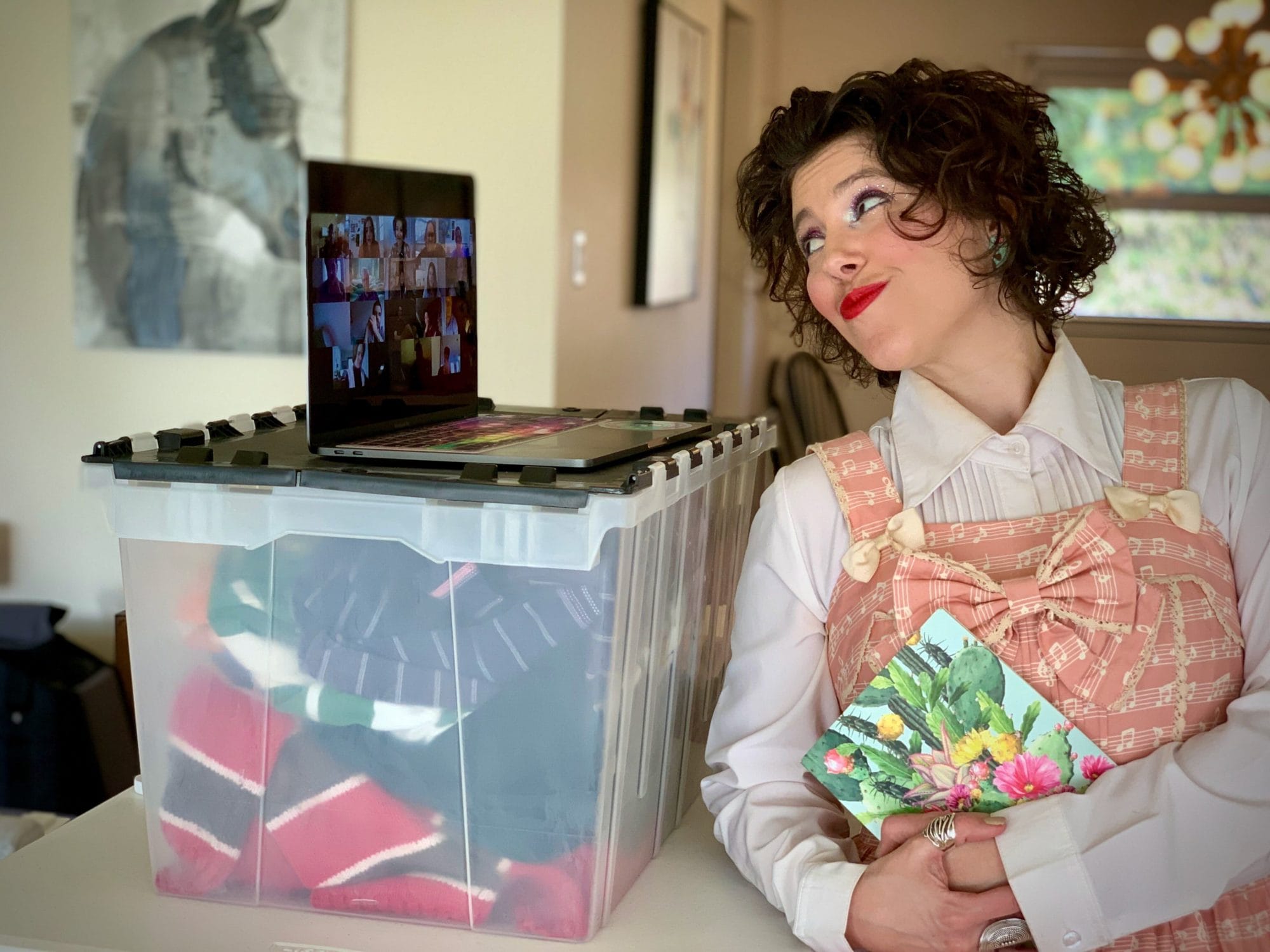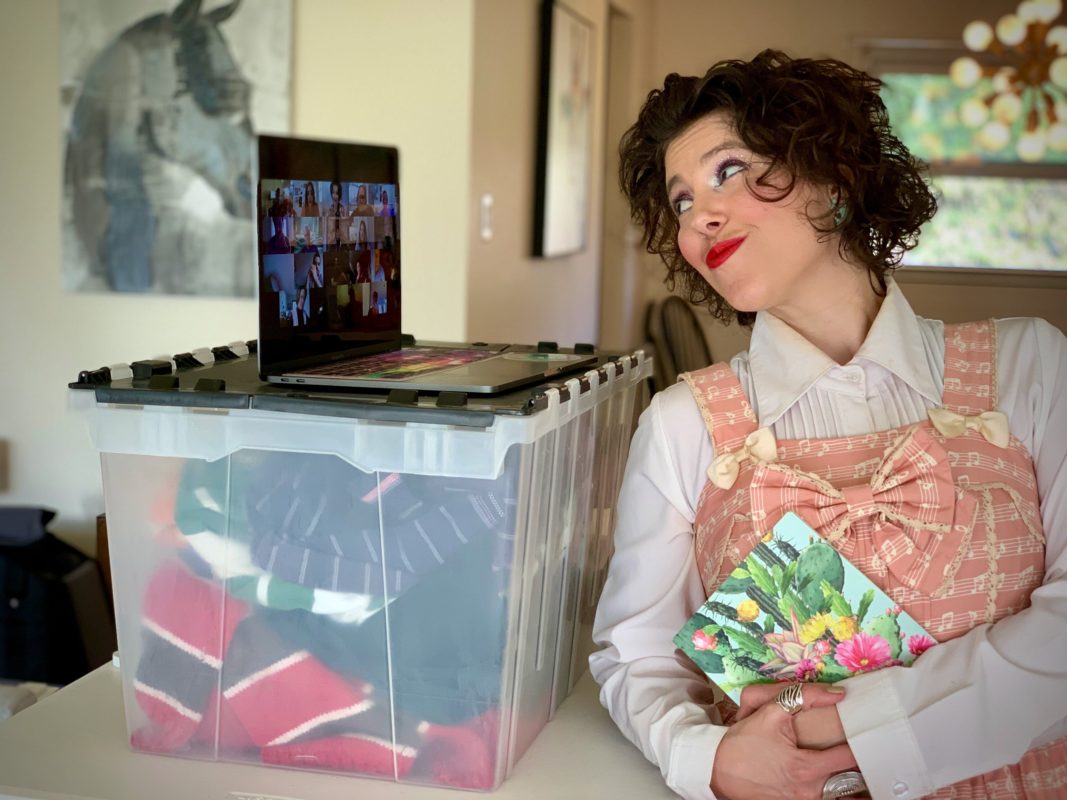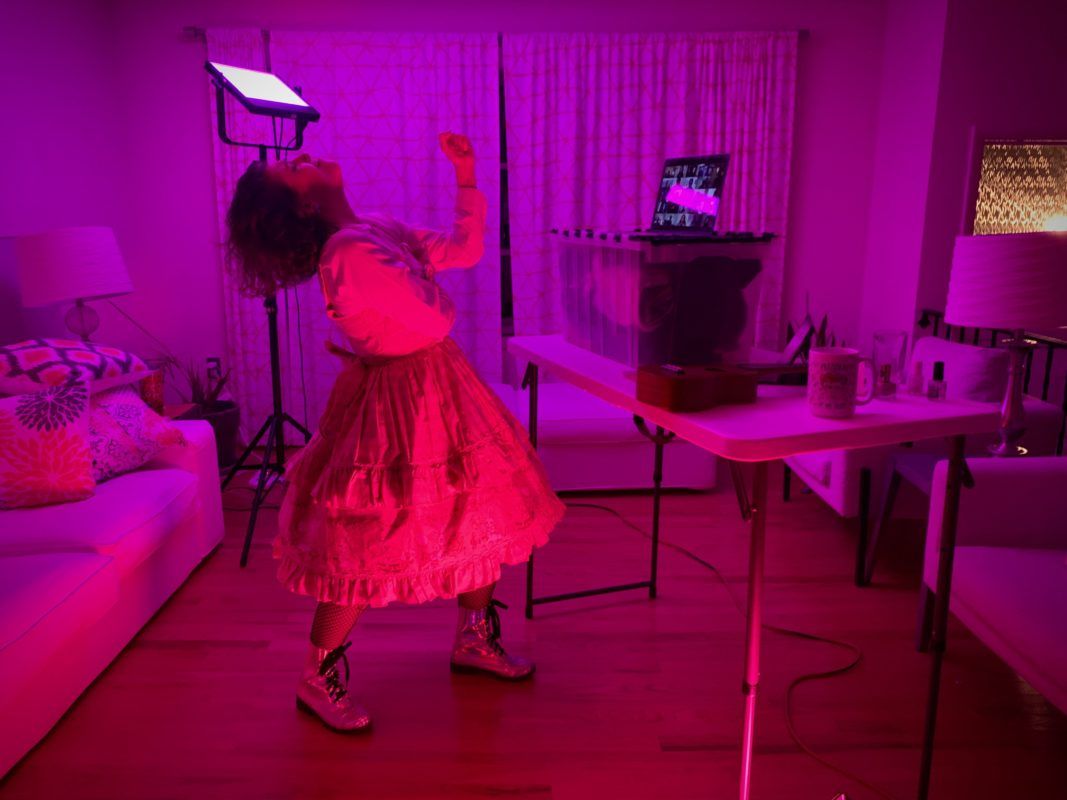From Bathtub to Laptop: Actor Plays with New Medium’s Possibilities


Since 2015, Siobhan O’Loughlin has performed in bathtubs across the country in “Broken Bone Bathtub,” an immersive show held in strangers’ bathrooms. As audience members give her a bath, she explores themes of vulnerability and connection, making a space communal that’s usually deeply private.
But in March, her upcoming tour was cancelled, and Brooklyn-based performance artist O’Loughlin, 33, traded the tub for a laptop. “In a state of panic, I threw myself into Zoom performances,” she said. “That was just me throwing darts at the wall.”
In the spring when actors across the city lost their stage, O’Loughlin, who moved to New York in 2009, was no exception. Widespread cancellations decimated revenue for arts organizations and artists, with nearly 3 million jobs lost across creative industries in four months, according to one report. “I lost not only my income from upcoming performances, but I lost my sense of relevancy as an artist,” O’Loughlin said at the time. But artists continue to create –– finding new ways to adapt to online mediums and connect with audiences.

In March, stuck in a Ditmas Park apartment loaned by a friend and patron, O’Loughlin launched headfirst into her first online performance: a reading from her diary. These early experiments with Zoom were improvised and free, with the option to donate through Venmo or Patreon, an online crowdfunding platform.
It was a dramatic departure from the past five years, when she toured “Broken Bone Bathtub” from city to city, able to support herself through ticket sales and Patreon in part because her nomadic lifestyle meant she wasn’t paying rent elsewhere.
As the lockdown continued, she developed more sophisticated shows, which evolved into a Zoom series called “Please Don’t Touch the Artist.”
“The shows are designed for Zoom, they’re not designed in spite of Zoom,” O’Loughlin said. “We look at the restrictions and say, ‘Okay, within these limitations, what kinds of things can we do?’”
She hired a production team, which she pays through ticket sales. While tickets for “Broken Bone Bathtub” went for $60, tickets for her online shows are offered on a sliding scale, starting at $10. Patreon donations keep her afloat and have increased during the pandemic, though she’s on the lookout for a publicist to increase her audience base to make the series more sustainable.
While Zoom wasn’t O’Loughlin’s first choice of venue, the innovations it’s motivated are likely to persist.
“Many people are finding new dramaturgical structures for the work that they’re doing, and new audiences. I can’t imagine that that won’t continue,” said Erin Mee, professor of theater studies at the New York University Tisch School of the Arts and director of her own series of online shows, including a Zoom play about a guru forced to try to heal acolytes from a distance. “I think it’s a whole new genre and way of thinking and doing theater,” she said.
Theater companies and artists across the country and the world are creating work online. Mee was one of nearly 300 who brought online shows to the Edinburgh Festival Fringe this year in an effort to continue performing despite the cancellation of the iconic in-person festival.
In “My Heart Goes Zoom,” her flagship show, O’Loughlin takes her audience through an interactive true story of a romantic connection forged over Zoom. Audience members are invited to play different roles, like Vlad, O’Loughlin’s cinephile love interest. They co-create scenes –– imagining what Vlad sounds like, how he takes up space in his Zoom square –– and share their own intimate experiences with heartbreak.
For some Zoom attendees, not all performances they’ve seen have translated well online. “I’ve seen an actress who I really admire, a fantastic actress. She was doing a Shakespeare monologue, and it did nothing for me,” said Kit Baker, a Colorado-based audience member. “It seems like some things are poor facsimiles of live performance.”
Some think O’Loughlin’s shows work because they’re specifically tailored to the platform. “Those elements that are more intended for a boring meeting, she enlightens and just makes fun and useful,” said Abigail Treut, a New York-based audience member.
O’Loughlin welcomes live audience feedback — verboten in traditional theater — on Zoom’s chat function. For Treut, connecting with others throughout the show deepens the experience. “People are all talking with each other, having this sort of communion,” she said.
The series has cultivated a faithful following, bringing regulars from across the country and, occasionally, the globe, together into the same space. Often Zoom after-parties will last until early in the morning. O’Loughlin’s team created a Slack for people to stay connected outside of shows, with channels for upcoming performances, mental health, memes, and vegan recipes.
For many, it’s a rare opportunity to forge new relationships during a time of prolonged isolation. “The Please Don’t Touch series is really the only place that I have met new people in the last six months” said Ariel López, a Minnesota-based audience member.
Like in “Broken Bone Bathtub,” O’Loughlin’s Zoom performances explore vulnerability and connection. Though it’s nothing like the forced intimacy of a bathroom, O’Loughlin marveled at the strength of the bonds she’s formed with those she’s never met in person.
“I can’t imagine a year ago thinking I would hang out in chat rooms, essentially, with people who I have no idea who they are — and be like: ‘Oh, that’s my friend,’” said O’Loughlin. “But at this point, I’ve completely accepted the bizarre reality… I can’t imagine 2020 without them.”